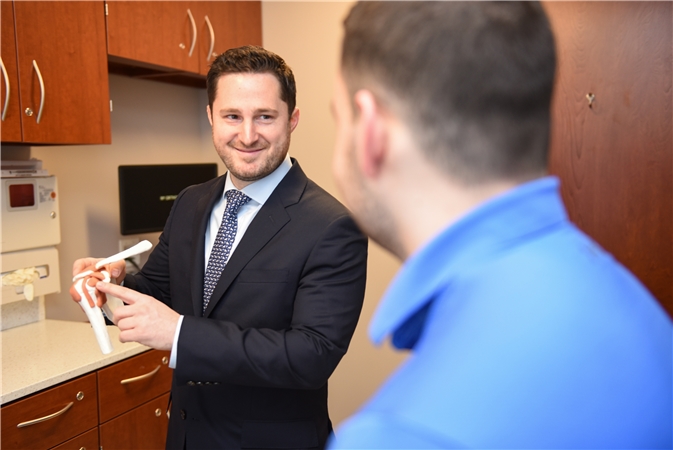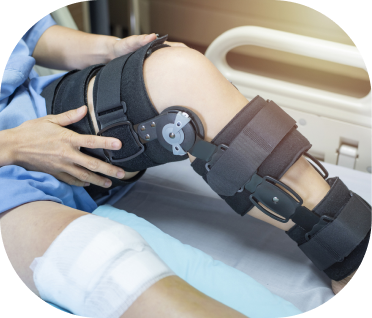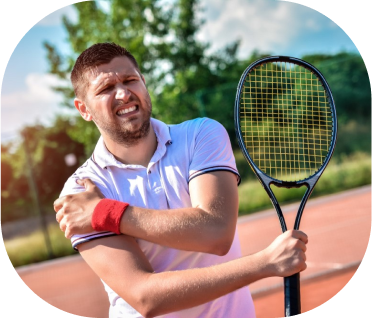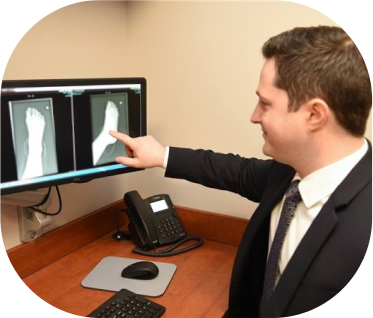
Knee injuries
Knee injuries can occur from recreational and competitive sports, work-related events, and everyday activities. As a Sports Medicine specialist, Dr. George Ackerman can provide an accurate diagnosis and offer individualized treatment options for knee injuries ranging from degenerative conditions to complex ligament and cartilage injuries.

ACL
he Anterior Cruciate Ligament (ACL) is the most commonly injured ligament in the knee. The ACL provides rotational stability and is often injured with twisting or hyperextension of the knee. Patients often feel a “pop” in their knee followed by swelling and a buckling sensation. Diagnosis of an ACL tear is made with a combination of knowing your symptoms, medical history, physical exam, and imaging studies such as an MRI.

Meniscus
The meniscus is a c-shaped piece of soft cartilage that sits between the femur and tibia. It acts as a shock absorber or cushion in the knee. Each knee has two menisci, the lateral (outer) and the medial (inside). When the meniscus tears, it may cause pain, swelling, instability, and locking. Some meniscus tears can be treated conservatively with physical therapy and anti-inflammatory medications. Many tears fail to improve with these conservative treatments however and require surgery to alleviate the associated symptoms. There are two options for meniscus tear surgery: removing the torn piece of meniscus (Partial Meniscectomy), and stitching the torn piece back together (Meniscus Repair).

Arthritis
Osteoarthritis is a condition involving loss of cartilage in joint such as the knee. Cartilage coats the end our our bones which provides a cushion and decreases friction in our joints. As the cartilage is worn away, the mechanics of the knee are affected resulting in pain and disability. If you are suffering from knee arthritis, you are not alone. Nearly 1 in 3 adults suffer from arthritis or other chronic joint symptoms. Arthritis can be caused by a number of factors including age, genetics, obesity, and previous injury.

Cartilage Repair
Normal knee function requires a smooth gliding articular cartilage surface on the ends of the bones. The cartilage acts to distribute force during repetitive high impact movements, such as jumping or running on hard surfaces. Despite its strength, articular cartilage is vulnerable to damage that can cause chronic knee pain. Injuries take the form of lesions, holes, or divots in the surface of the cartilage.
